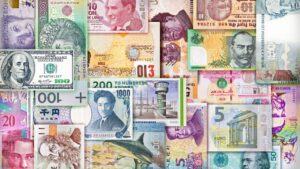Imagine two brilliant thinkers—one an unstoppable optimist, the other a relentless pessimist—locked in a battle of ideas that would forever change how we understand the human mind.
When two psychologists, Amos Tversky and Daniel Kahneman, first joined forces, no one could have predicted the impact they would have. Their opposing perspectives sparked a revolution that tore down the foundations of traditional economics. The unlikely partnership of these two Israeli psychologists didn’t just lead to a breakthrough–it gave birth to a whole new science of decision-making: behavioral finance. It also laid the groundwork for a third revolutionary thinker to take their ideas further.
Amos Tversky was the quintessential optimist, always finding the silver lining in any cloud. He was confident, quick-witted, and had an uncanny knack for spotting potential in ideas that others might dismiss as too risky or unconventional. Michael Lewis, in his book The Undoing Project, paints Tversky as a charismatic, witty, and fiercely intelligent individual with a magnetic personality. In contrast, Daniel Kahneman played the role of the analytical skeptic. His cautious nature had him questioning everything, digging deep to uncover the flaws and weaknesses that often eluded others.
Where Tversky saw limitless potential, Kahneman saw risks that needed to be measured and understood. This blend of confidence and caution, optimism and skepticism, created a perfect intellectual harmony between them.
Armed with a curious spirit, Tversky and Kahneman embarked on a quest filled with creative experiments, real-life scenarios, and meticulous analysis of human behavior. By blending insights from psychology with economics, they exposed the hidden forces guiding our thoughts and actions.
Traditional economic models had long assumed people make rational decisions, but Traversky and Kahneman’s work shattered that illusion. They introduced concepts like heuristics—mental shortcuts we use when making decisions—and cognitive biases, showing how our minds can lead us astray in predictable ways.
Here are a few of the most common mental shortcuts and how they can trip us up:
- Availability Heuristic – We judge the likelihood of an event based on how easily examples come to mind. If you recently read about a plane crash, you might overestimate the danger of flying, even though it’s statistically much safer than driving.
- Confirmation Bias – We tend to seek information confirming our beliefs while ignoring evidence contradicting them. So, if you believe a particular stock is a great investment, you might only focus on news that supports that idea and dismiss anything that says otherwise.
- Loss Aversion – This is the kicker. The pain of losing something feels way worse than the joy of gaining something of equal value. Losing $100 in the stock market stings far more than the thrill of gaining $100.
Their groundbreaking insights revealed that we’re not always the rational creatures traditional economists believed us to be; we’re emotional beings influenced by our past experiences and the context in which we find ourselves. This shift in focus from purely logical economic models to a more human-centered approach was revolutionary.
Now, speaking of challenging the status quo, let’s talk about Richard Thaler, a self-proclaimed “lazy” black sheep of the economics world. Inspired by Tversky and Kahneman’s discoveries, he took their ideas and ran with them, embracing the so-called “dumb stuff people do.” Instead of glossing over human quirks, he made them the centerpiece of his research. Thaler claims he’s too lazy to believe traditional economic models can fully explain how we behave in the real world. So, he cataloged irrational behaviors, turning them into teachable moments that showed how these so-called “flaws” could be nudged to guide us toward better choices.
For instance, his work on behavioral “nudging” demonstrated how small changes in the way options are presented can significantly influence people’s decisions. Ever notice how placing healthier food at eye level encourages better eating habits? Or how automatic “opting in” to 401(k)s contributions has drastically increased the number of people saving for retirement? And then there’s the infamous fly decal in men’s restroom urinals–talk about a creative nudge! Thaler tapped into that natural instinct to hit a bullseye by giving guys a target to aim for, reducing spills in the process.
It wasn’t laziness that led him to his theories, but rather a rebellious spirit that questioned the status quo—an attitude that eventually earned him the Nobel Prize in Economics.
Together, Tversky, Kahneman, and Thaler turned economics on its head. They cracked open the traditional models of rationality and exposed the messy, complex, and wonderfully human side of decision-making. Their ideas have rippled through countless industries, from marketing and healthcare to education and government, proving that understanding how people think and behave is far more valuable than expecting them to be perfect.
Our biases, irrationalities, and mental shortcuts aren’t flaws to be corrected but keys to unlocking a deeper understanding of ourselves. In a world that often prizes certainty and logic, Tversky, Kahneman, and Thaler revealed the beauty in our inconsistencies. Their story isn’t just about changing economics; it’s about changing our mindset—reminding us that the most groundbreaking ideas come from those brave enough to embrace the chaos of being human.
As you reflect on your decision-making processes, consider how acknowledging your biases might lead to better choices. By understanding and accepting our imperfections, we open ourselves to greater insights and opportunities for growth. Tversky, Kahneman, and Thaler dared to look beyond the rational surface and dive into the messiness of human thought. They showed us that the true power of progress lies in understanding not just how we ought to think but how we actually do. And in doing so, they didn’t just change the world of economics—they changed how we see ourselves.
Better decisions start with understanding how we actually think. If you’re navigating important financial choices, let’s connect—we’re here to help bring clarity and confidence to the process.
Uplevel Wealth is a fee-only, fiduciary wealth management firm serving clients in Portland, OR, and virtually throughout the U.S.




